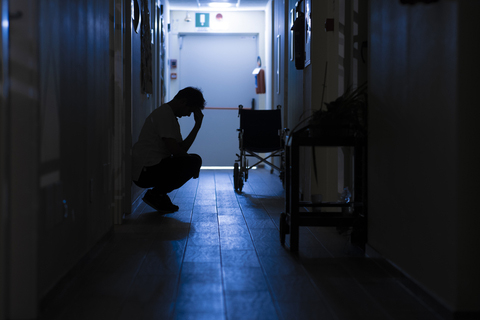NHS intensive care staff suffered same levels of PTSD during Covid as Afghanistan combat veterans
According to a study reported in inews, NHS critical care professionals have experienced the same levels of PTSD as British military veterans serving in Afghanistan in combat roles during the epidemic. Researchers say people afflicted should be given priority access to mental health therapy.
Colonel Tony Gauvain (retired), chairman of PTSD Resolution, comments on the study:
“ We have worked for the past 13 years with UK services’ veterans of Afghanistan and other conflicts and successfully alleviated their symptoms of trauma, with nearly 4,000 referrals to date. We are ready and able to train NHS frontline staff and personnel managers using the same Human Givens methods as employed by our network of 200 therapists. The training is invaluable in ensuring that NHS staff recognise the symptoms of trauma and have a clear pathway to getting successful treatment.”
In 2021, the military veteran’s charity PTSD Resolution was engaged to deliver Trauma Awareness Training for 250 staff in Gloucestershire Health and Care NHS Foundation Trust.
The new study by UCL and King's College London (KCL) discovered that nearly two-thirds of intensive care unit (ICU) personnel may have suffered a mental health issue during the winter surge last year. This includes depression, anxiety, hazardous alcohol use, and post-traumatic stress disorder.

Sixty-nine percent said their ability to perform daily duties was hampered by their mental health. A comparable proportion stated their ability to accomplish their job was impacted by their mental health.
More than 6,000 staff members from 56 ICUs in England answered questions aimed to assess their mental health and ability to perform day-to-day responsibilities. They undertook assessments prior to, during and after the 2020/21 winter surge.
Some 45 percent of the ICU personnel fit the criteria for PTSD, which prior study has shown to be comparable to Afghanistan veterans. The study, which was published in The British Journal of Anaesthesia reported that the incidence of mental health disorders among intensive care workers was likely to have an impact on patient treatment as well as staff long-term welfare.
Neil Greenberg, Professor of Defence Mental Health at KCL and study co-senior author, said: “The UK already recognises military veterans as a special group and the NHS provides them with dedicated, priority healthcare, allowing them more rapid access to assessment and treatment than other members of the general population.
“Our results demonstrate that the same should apply to NHS staff who have undoubtedly been the country’s first line of defence over the past two years, and most probably for much longer.
“We cannot afford to have NHS staff waiting to receive evidence-based mental healthcare; instead the nation should do all they can to ensure that those NHS staff who are damaged by their work have access to priority care in the same manner as is afforded to military veterans.”

Anxiety, stress, depression, or other psychiatric diseases are routinely the most reported reasons for sickness absence within the health service, accounting for approximately 593,200 full-time equivalent days lost and 23.7% of all sickness absence, according to NHS England's December 2021 statistics.
The authors said it was a “significant concern” that staff continued to be ill after the surge had passed. During April and May 2021, more than half (52%) of respondents indicated their ability to perform daily duties was hampered by their mental health.
The study discovered that younger, less experienced personnel and nursing professionals were more likely to meet the criteriona for having a mental health issue. More than half of the responders (57.5%) were nurses, 27.9% were doctors, and 14.5% were other healthcare workers.
The researchers noted that the survey is not diagnostic in and of itself, and that because it relies on self-reporting of symptoms, it should only be viewed as providing estimates of prevalence. Nonetheless, they stated that their findings have important implications for the NHS and how it should restore its staff following the pandemic's tremendous challenges.| We publish a regular Newsletter that contains lots of information about people that we have helped, the work that we do etc. If you would like to receive it, please Click Here to sign up to the Newsletter List. |
Contact: 0300 302 0551 or contact@ptsdresolution.org . www.ptsdresolution.org

